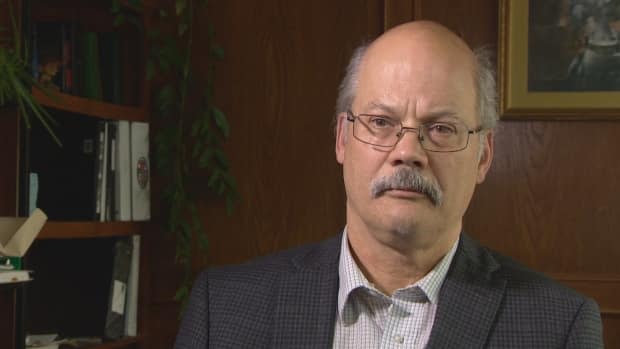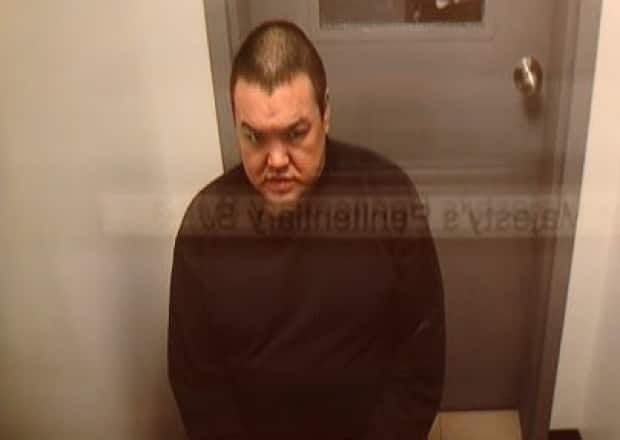Silence on prison guards accused in Henoche killing 'bogus,' says St. John's lawyer
A St. John's lawyer says his colleagues across Canada have been left aghast at how authorities have handled the homicide of an Indigenous inmate in St. John's, a case critics have already called shameful and bewildering.
Ten previously unnamed correctional officers charged in connection to the death of an Indigenous inmate in St. John's were identified in court documents Friday.
Bob Buckingham, reached by phone just after the 10 guards were named, said the 18-day delay between their arrests and identification isn't something he's ever encountered.
"Well, it's about time," said Buckingham, who had been representing 33-year-old Jonathan Henoche prior to his death.
"There should not have been the need for three weeks of constant press and pressure."

Buckingham said he'd spoken to lawyers across the country about the case, noting that in addition to the lack of information about the accused, all 10 were also released without a bail hearing, despite three of them facing a manslaughter charge.
"No one has ever encountered this before. It's unheard of that individuals charged with offences such as this ... would be released by an officer on an undertaking to appear," he said.
"It's particularly more disturbing when there's 10 of them involved in this, and they're treated with such kid gloves and favouritism. No one's heard of it. And people are aghast."
The Royal Newfoundland Constabulary and Justice Minister Steve Crocker repeatedly cited the ongoing investigation to explain why those arrested remained unnamed. The Department of Justice has also referred to privacy laws preventing officials from disclosing the personal information of employees.
Buckingham isn't buying it.
"It's bogus," he said.
"The investigation continues to be ongoing. I know for a fact there are witnesses that have yet to be interviewed ... that explanation is self-serving, bogus and an obfuscation of the real issue."

The chair of the Canadian Prison Law Association, Tom Engel, agrees with Buckingham.
He said after a year-long investigation, and a decision made by police and the Department of Justice to arrest, charge and prosecute the guards, continuing to keep their names a secret didn't make sense.
"I really believe strongly that the government has a duty to the people to explain the rationale for this," he said. "And I think it just made it worse by coming up with that ridiculous explanation."
Engel said it is "extraordinary" for someone accused of a charge as serious as manslaughter to be released on an undertaking, but it's not unheard of.
"The law presumes that people will get released without having to go to a bail hearing, unless there are grounds to detain them in custody or conditions that have to be placed on them that can't be placed on them by a police officer … [which] would have to be placed on them by a justice of the peace," he said.
"The sad thing is that they don't apply that particular process under the criminal code to people, shall we say, other than law enforcement officers."
What happened
Henoche died on Nov. 6, 2019, while being held in protective custody at Her Majesty's Penitentiary in St. John's.
He was awaiting a murder trial, accused of killing 88-year-old Regula Schule.
Sources told CBC News that an altercation started when two correctional officers approached Henoche. A violent altercation took place between Henoche and officers, and Henoche was eventually taken to segregation.
He reportedly suffered a medical emergency following the incident, which sources have said was recorded. The Royal Newfoundland Constabulary responded, and opened an investigation into the death.

On Dec. 21, police announced they had arrested several staff members at the penitentiary, but did not release their names, ages, positions or how many were facing charges.
In the following days, after mounting pressure, the RNC released the number of staff arrested and their ages.
Up until their appearance on the provincial court docket Friday, the RNC maintained that the investigation remained active in the days following the arrests, and that's why the charges were not sworn and none of the names of the accused were published on the public docket.
What's next?
It's not clear yet how any of the accused will plead, or whether they will be charged jointly or separately.
It's also not clear on what conditions the 10 accused have been released from custody.
"We have to know what the conditions are. I have real concerns about what the conditions are, and if they're strong enough," Buckingham said.
"My expectation is, now that they have been charged, each of the defence counsel will file with the court what's called a designation of counsel," he said.
If the designation of counsel application is approved, Buckingham said, it would allow each of the accused to remain out of court as much as possible and they would not need to appear in court until their preliminary hearings.
"That's a real possibility," he said. "Any defence counsel worth their salt would make that application."
There still has to be a push for the truth. - Bob Buckingham
Buckingham estimates it could take two to three years for the charges to make their way through the justice system.
He continues to call for an inquiry, which he believes should examine training protocols and systemic racism within correctional services in Newfoundland and Labrador.
"There has to still be a push for the truth," he said. "Rather than just accepting what they say, bald-faced, and then not pursue it anymore."
The accused will appear in court Feb. 11.

